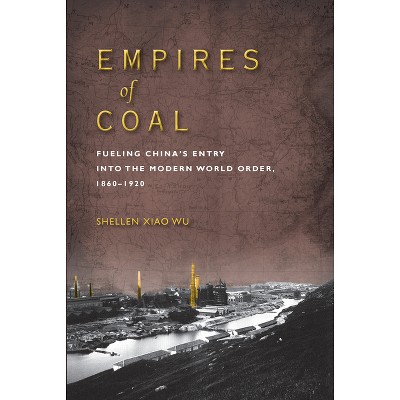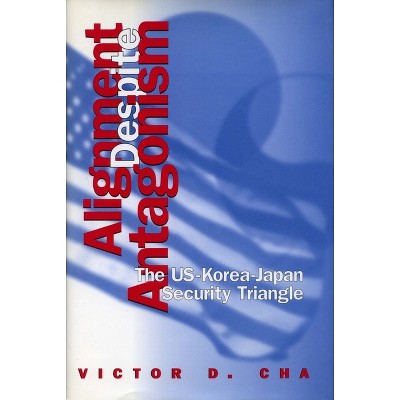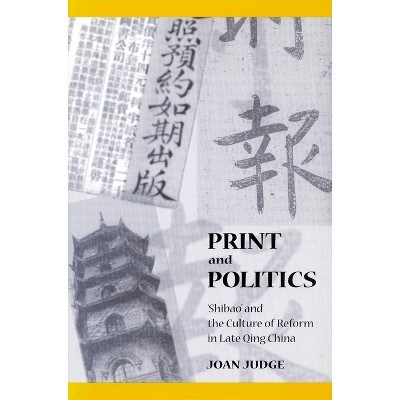Sponsored

A Nation Within - (Studies of the Weatherhead East Asian Institute, Columbia Un) by Sayaka Chatani
Pre-order
Sponsored
About this item
Highlights
- The presence of hundreds of thousands ethnic Koreans in Japan, or "zainichi Koreans," is one of the visible legacies of Japanese colonialism.
- About the Author: Sayaka Chatani is Associate Professor of History at the National University of Singapore.
- 328 Pages
- History, Asia
- Series Name: Studies of the Weatherhead East Asian Institute, Columbia Un
Description
About the Book
"The presence of hundreds of thousands ethnic Koreans in Japan, or "zainichi Koreans," is one of the visible legacies of Japanese colonialism. A surprising and influential group among zainichi Koreans that persists to this day is Chongryon, the only pro-North Korean diasporic group based in a capitalist society. Chongryon historically represented the central grassroots force seeking to liberate Koreans from Japan's imperial and neo-imperial influences. At the heart of the Chongryon community stands a political organization equipped with a central bureaucracy in Tokyo, with a headquarters in nearly every prefecture. Often called a de facto embassy of North Korea, the Chongryon organization has, in effect, functioned as a state within another state--operating hundreds of schools, banks, hospitals, business associations, publishing houses, and many other institutions across Japan. Based on extensive archival research and nearly 250 original interviews collected with co-researcher KumHee Cho, who was raised within the Chongryon community, Sayaka Chatani offers a sweeping social history of this secretive, protective community in xenophobic Japanese society. Weaving together personal accounts and situating them in a multi-layered, transnational political context, the book offers a finely textured, intimate narrative of the community's tumultuous history and decolonial praxis. Through the stories of Chongryon, this book provides a bottom-up analysis of power politics among zainichi Koreans and reshapes our understanding of Japanese history, Korean history, and the Cold War in Asia"-- Provided by publisher.Book Synopsis
The presence of hundreds of thousands ethnic Koreans in Japan, or "zainichi Koreans," is one of the visible legacies of Japanese colonialism. A surprising and influential group among zainichi Koreans that persists to this day is Chongryon, the only pro-North Korean diasporic group based in a capitalist society. Chongryon historically represented the central grassroots force seeking to liberate Koreans from Japan's imperial and neo-imperial influences. At the heart of the Chongryon community stands a political organization equipped with a central bureaucracy in Tokyo, with a headquarters in nearly every prefecture. Often called a de facto embassy of North Korea, the Chongryon organization has, in effect, functioned as a state within another state--operating hundreds of schools, banks, hospitals, business associations, publishing houses, and many other institutions across Japan.
Based on extensive archival research and nearly 250 original interviews collected with co-researcher KumHee Cho, who was raised within the Chongryon community, Sayaka Chatani offers a sweeping social history of this secretive, protective community in xenophobic Japanese society. Weaving together personal accounts and situating them in a multi-layered, transnational political context, the book offers a finely textured, intimate narrative of the community's tumultuous history and decolonial praxis. Through the stories of Chongryon, this book provides a bottom-up analysis of power politics among zainichi Koreans and reshapes our understanding of Japanese history, Korean history, and the Cold War in Asia.
Review Quotes
"A Nation Within is truly groundbreaking. The result of painstaking labor and close partnership with an 'insider researcher' who has direct links to the Chongryon community, the book provides an intimate history of the pro-North Korean Zainichi in Japan. Sayaka Chatani and her interlocutor KumHee Cho thereby illuminate contemporary Japan to be deeply 'postimperial' in the sense that it is still embedded in its imperialist dominion, precisely as shown through its treatment of the Zainichi. Their resilience in the face of systemic oppression offers a window into North Korean society's enduring stability despite geopolitical and economic headwinds." --Suzy Kim, Rutgers University
"Combining ethnography, history, and conceptual boldness, this finely textured account of the Chongryon community of Koreans in postwar Japan culminates in an ambitious and reasoned claim for a 'postimperial' perspective, which questions received views of postwar Japanese history, of empire, of national, regional and global forces, from 1945 until today. A stunning work on every one of its many levels." --Carol Gluck, Columbia University
About the Author
Sayaka Chatani is Associate Professor of History at the National University of Singapore. She is author of Nation-Empire: Ideology and Rural Youth Mobilization in Japan and Its Colonies (2018).










